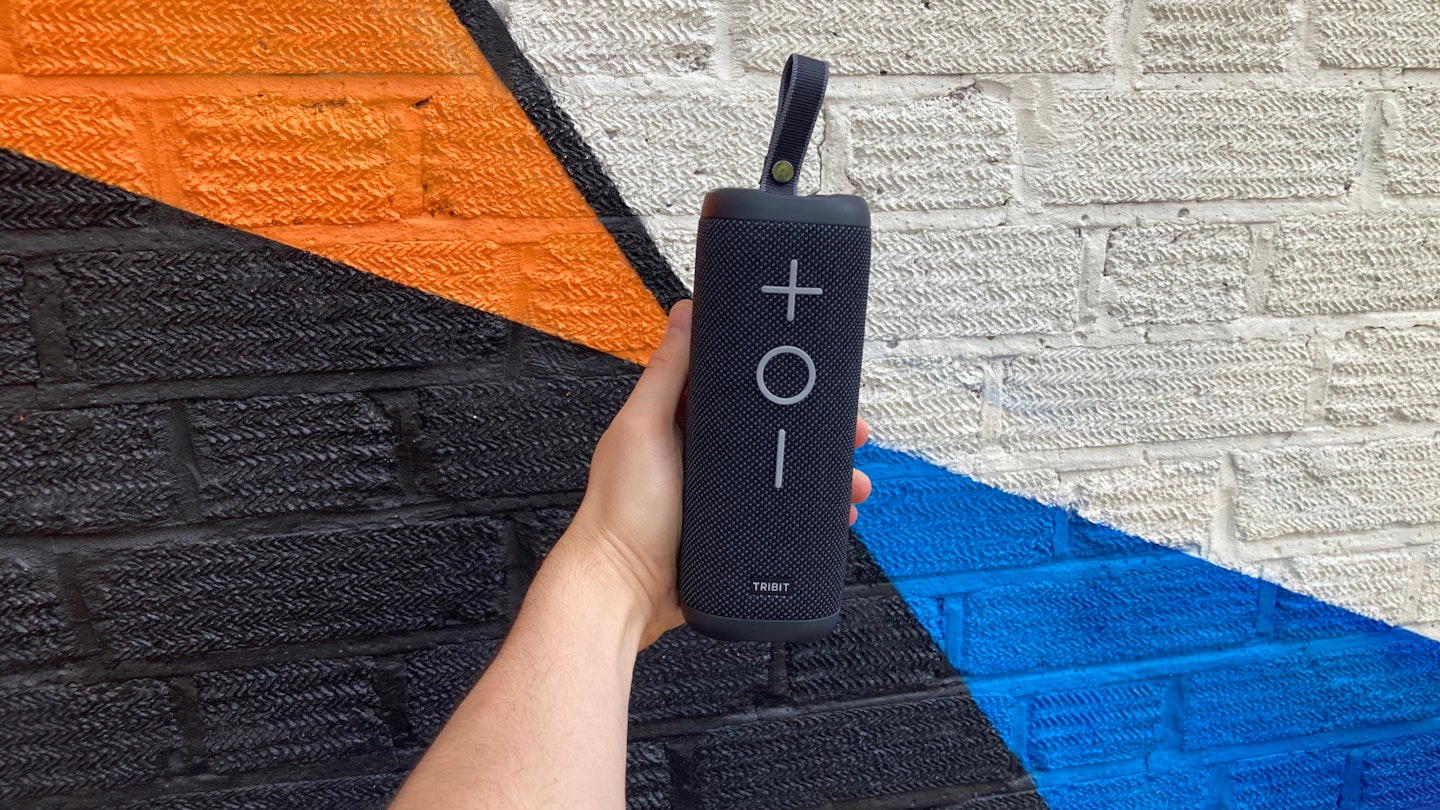'Do Re Mi' is the Tribit philosophy. Less musical scale or Julie Andrews on a mountaintop, more a mission statement to create the best speakers and earbuds for audiophiles.
In Tribit's words, 'Do' is a commitment that they'll 'do the best' and 'Re' a promise that the brand can be 'relied on', while 'Mi' symbolises (and this is more of a syntactic stretch) 'Musicians' Music Mix'. To quote: "Like expertly blending voices in a musical composition, we collaborate closely with our customers, co-creating products that resonate with their desires and needs."
Company philosophies are one thing, delivering on them another. However, Tribit has proven that it can walk the talk. The StormBox Pro, XSound Go and StormBox Micro 2 have all received positive reviews from the experts at What’s The Best.
But what of the Tribit StormBox 2? Released in 2024, the next generation of the original StormBox is more powerful, offers longer playtime and can be operated via the Tribit app – all for a budget price. David Ker put it to the test.
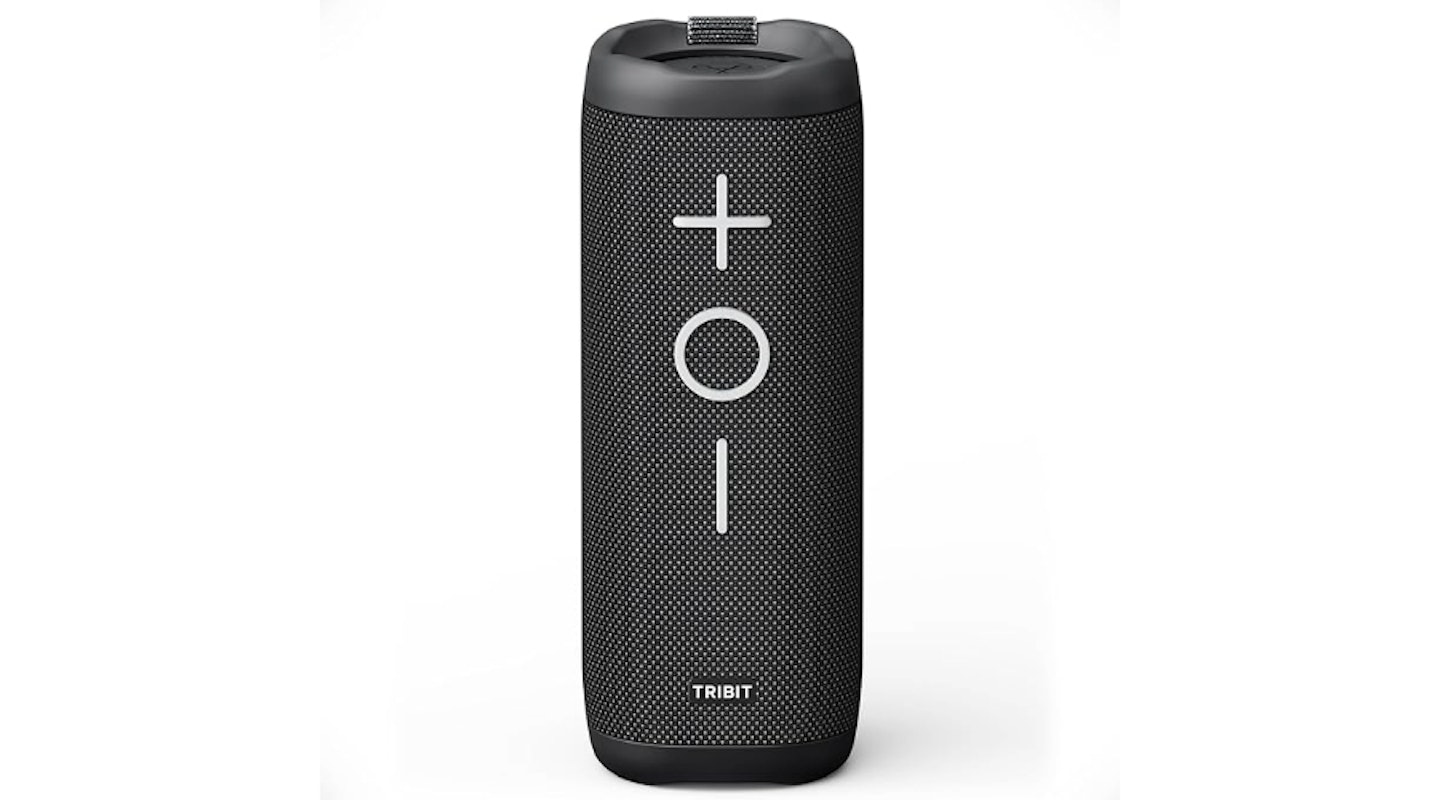 Tribit
TribitAn upgrade on Tribit's original StormBox.
Pros
- Powerful for its price
- Exposed passive radiators to 'see' the sound
- Easy to use
- Impressive battery life
- AUX and Bluetooth
Cons
- Only one colourway
- Bass prioritised over vocals
| Output power | 2 x 17W drivers |
| Frequency response range | 70∼20KHz |
| Frequency band range | 2402-2480MHz |
| Bluetooth verson | 5.3 |
| Play time | 24 hours (at 60% volume with XBass off) |
| Charging time | Around four hours |
| IP rating | IPX7 |
| Size | 180mm x 69mm x 69mm |
| Weight | 580g |
| Wireless range | 30 metres |
Sound that shakes
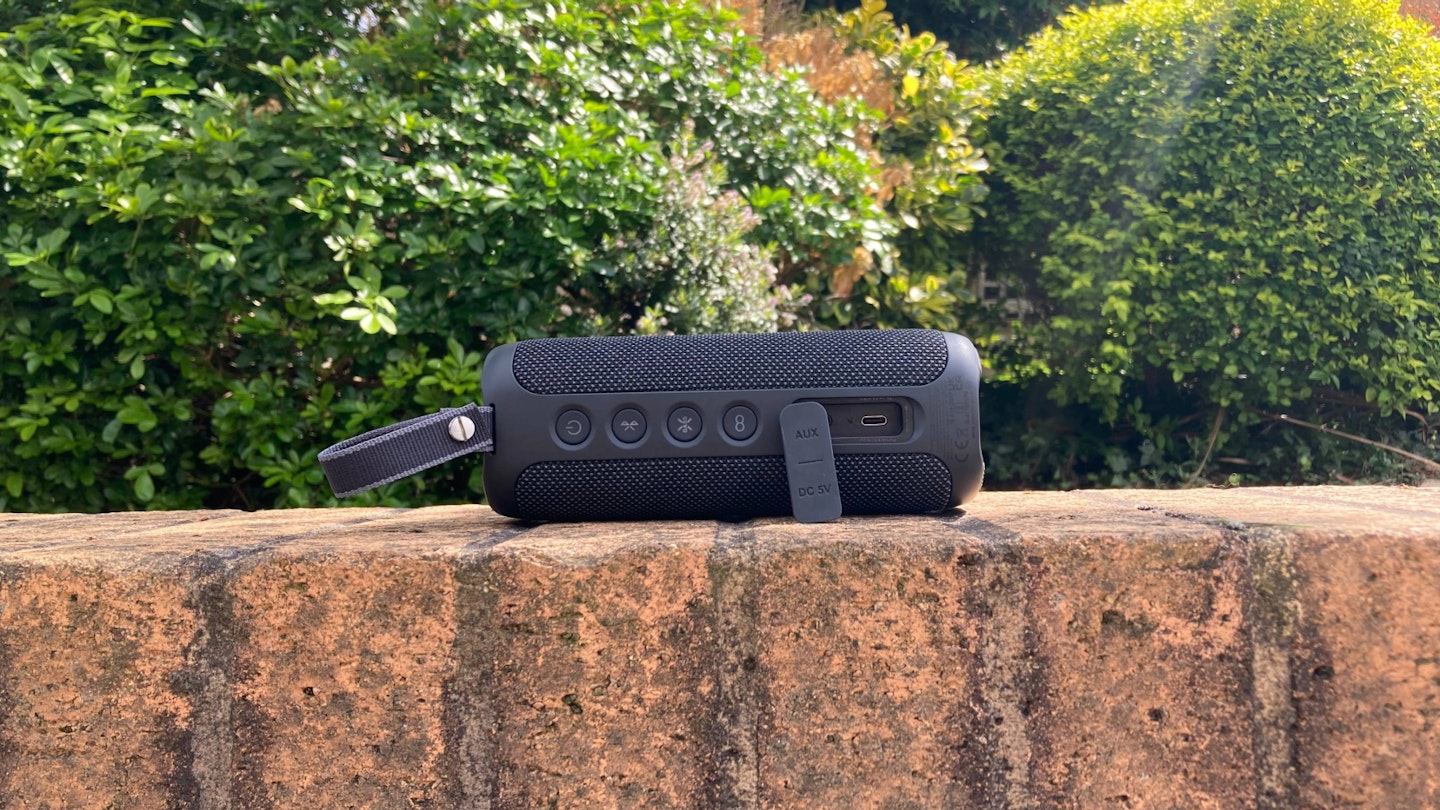
It's Tri like 'trip', not Tri as in 'trike', in case you were wondering. Is pronunciation the only hurdle to get over when it comes to the Tribit StormBox 2? Quite possibly. This is a reassuringly straightforward, small Bluetooth speaker in look and function.
Standing at around 18cm tall and weighing approximately 580g, the unit boasts two drivers which together can deliver 34W of power. There are also recessed passive radiators at the top and base which sport the Tribit logo and visibly vibrate as I up the volume on songs, including Stevie Wonder's Superstition and Cum on Feel the Noize by Slade. They come out clear and loud with a power which belies this speaker's size and price.
Box of tricks
The StormBox 2's sound is described as 360 degrees, and while this might not be entirely reflected in the internal workings or output (the two drivers sit on the left and right when looking at it front on), the overall design does give this impression.
Rectangular with rounded edges, the majority of the speaker is encased in a black and grey hound's-tooth-like fabric. The remaining external material is a durable plastic. This includes the volume control (plus and minus) and play/pause/skip (circle) buttons which are prominently displayed, much in the same style as the Ultimate Ears Boom range.
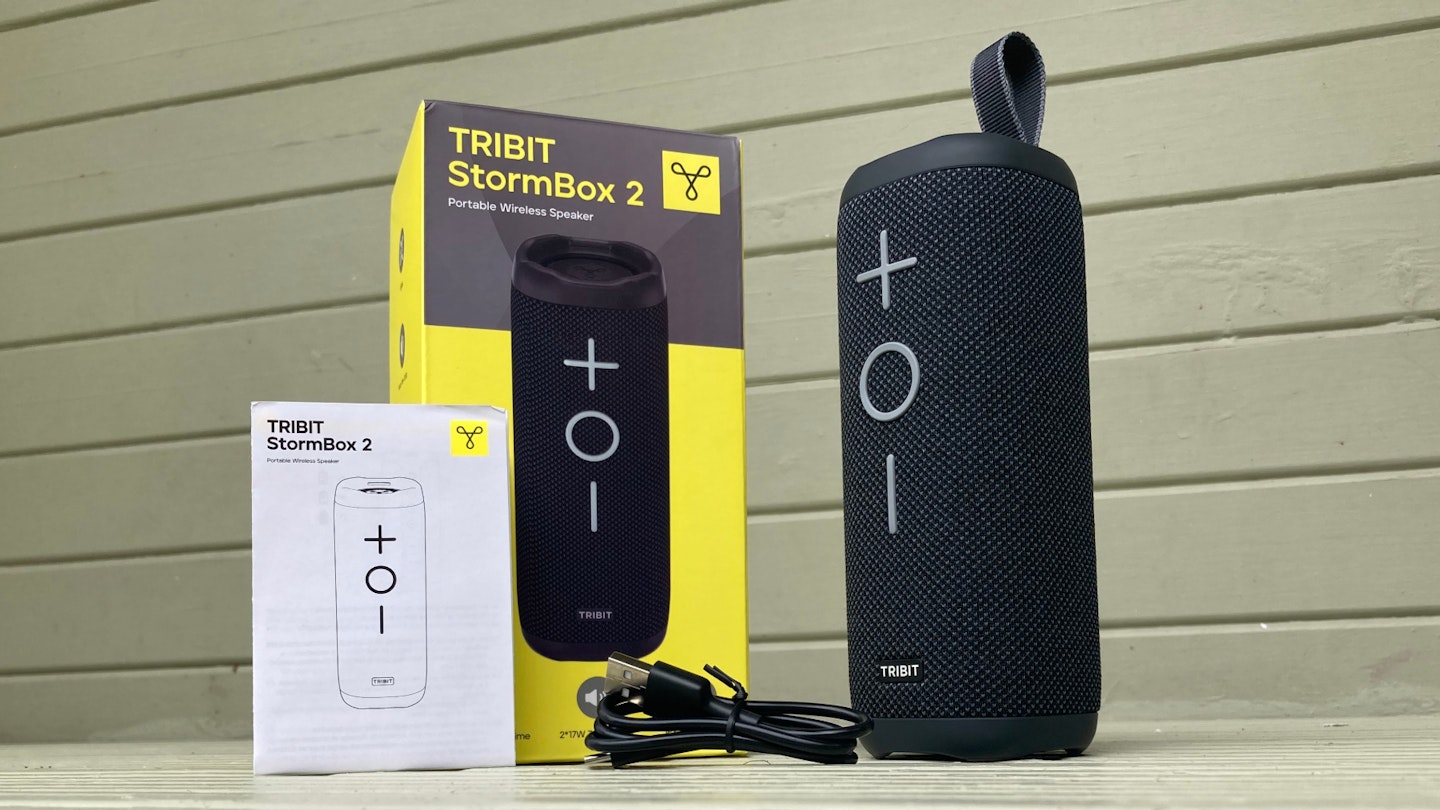
On the rear are four further buttons for power, Bluetooth, 'XBass' and TWS (True Wireless Stereo). Plus, an AUX port and a USB-C charging point (a USB-C to USB-A cable is included in the box, but no mains charger).
Finishing off the unit is a strap, in the same colour scheme as the rest of the material, with which to carry or attach the StormBox 2. It can be removed, but if left in place tends to stand bolt upright like a rogue head hair – think Alfalfa from The Little Rascals.
A few of my favourite things
It's always a pleasure to discover that a speaker which advertises itself as the next generation in a series is, indeed, a genuine advancement on the original version.
The StormBox 2 has more output power (34W not 24W), longer playtime (up to 24 hours not 20) and the latest Bluetooth (version 5.3 not 4.2). It also supports the pairing of speakers using TWS mode and can be operated via the Tribit app, neither of which were possible with the original StormBox.
Of these developments, a battery life which is not routinely surpassed in speakers of its size is among the most commendable. Using the StormBox 2 intermittently over the course of a couple of weeks I only saw it deplete by 50 per cent.
Controlling my listening with the help of the Tribit app was simple and aided by equaliser presets. You can't turn the speaker on remotely, but you can choose from 'Audiobook', 'Classical', 'Rock' and 'Jazz', as well as a customisable EQ and the ability to switch between having 'XBass' mode on and off. This bass boosting feature does as you might expect, and the results are pleasing and perceptible, in part thanks to the pulsating passive radiators mentioned earlier.
More than most
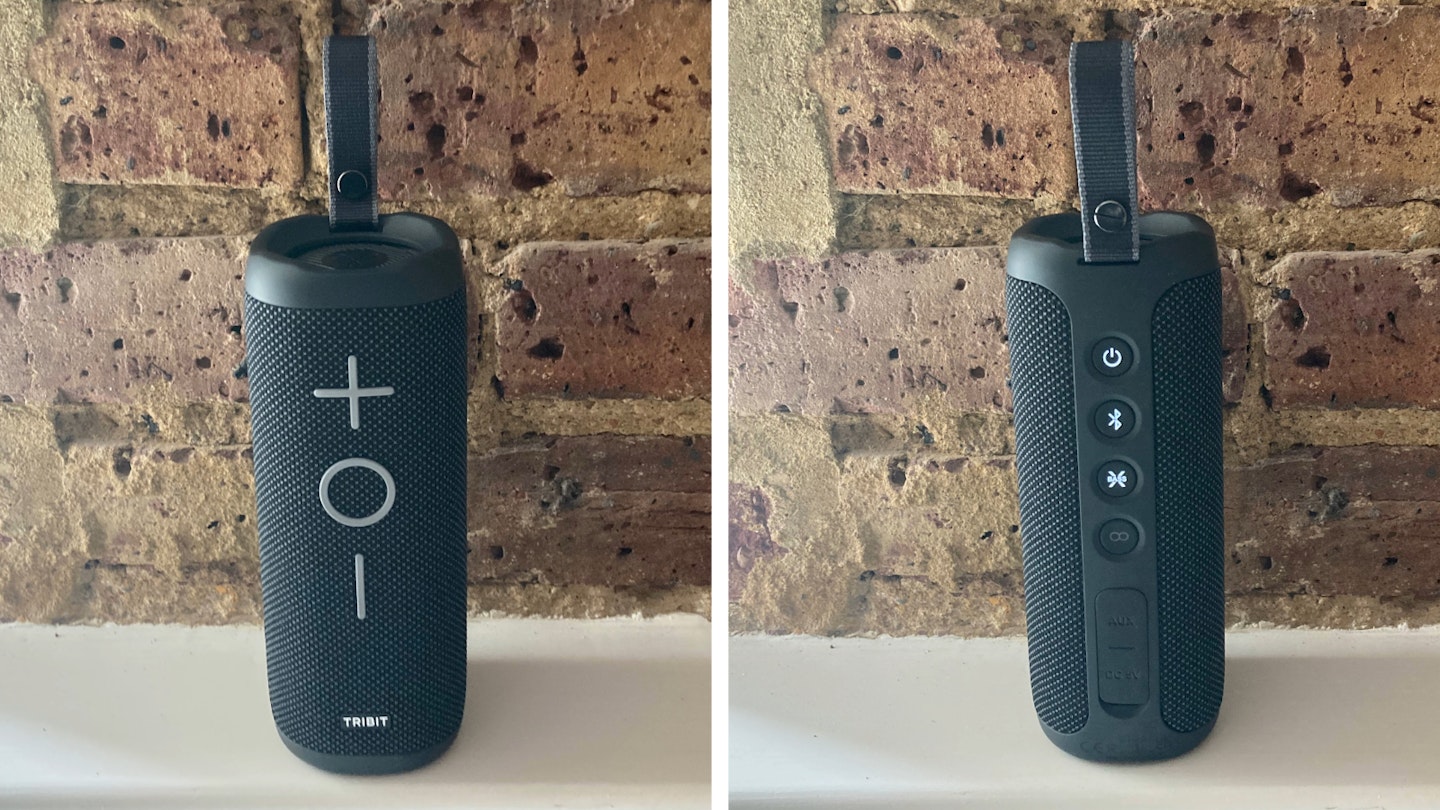
Weight-wise, the StormBox 2 does the necessary to justify its self-described portability. Easily held in one hand, it's light and takes up little room in a bag or backpack. It's rated X7 for IP (Ingress Protection). This means that it's rated seven out of nine when it comes to water-resistance – more than sufficient. Interestingly, it hasn't been tested against dust, or if it has the makers have decided not to disclose the result, hence the X in IPX7.
Whether home or away, you'll be able to take calls using the in-built mic. While you may well get greater clarity through using your phone or computer alone, it remains a bonus, and not a feature which is routinely found in other speakers of comparable price.
Its design, while similar to the first StormBox, is also an upgrade in terms of feel – the fabric and indented buttons give the impression of a more premium product when compared to its plasticky predecessor.
Any downsides?
Some sustainability assurances have been given by Tribit, including that the speaker is made of at least 50 per cent recycled material, but they could've gone a step further and rethought one aspect altogether. As alluded to, the polyester strap at the top is conspicuous. The small screw which holds it together is fiddly and doesn't allow for quickly attaching the speaker to (or releasing it from) another item if using on the move. At the time of writing, there is also no variety in colour options, so you'll need to be on board with the black and grey.
Beyond the look of the StormBox 2, the sound – while impressive overall – suffers when it comes to the spoken word. So, if you're likely to be using your speaker for audiobooks, podcasts and the like you might want to consider a more significant investment, the JBL Authentics 300, for example. Alternatively, you could go in an entirely different direction and procure a pair of high-quality wireless headphones.
Price and competition
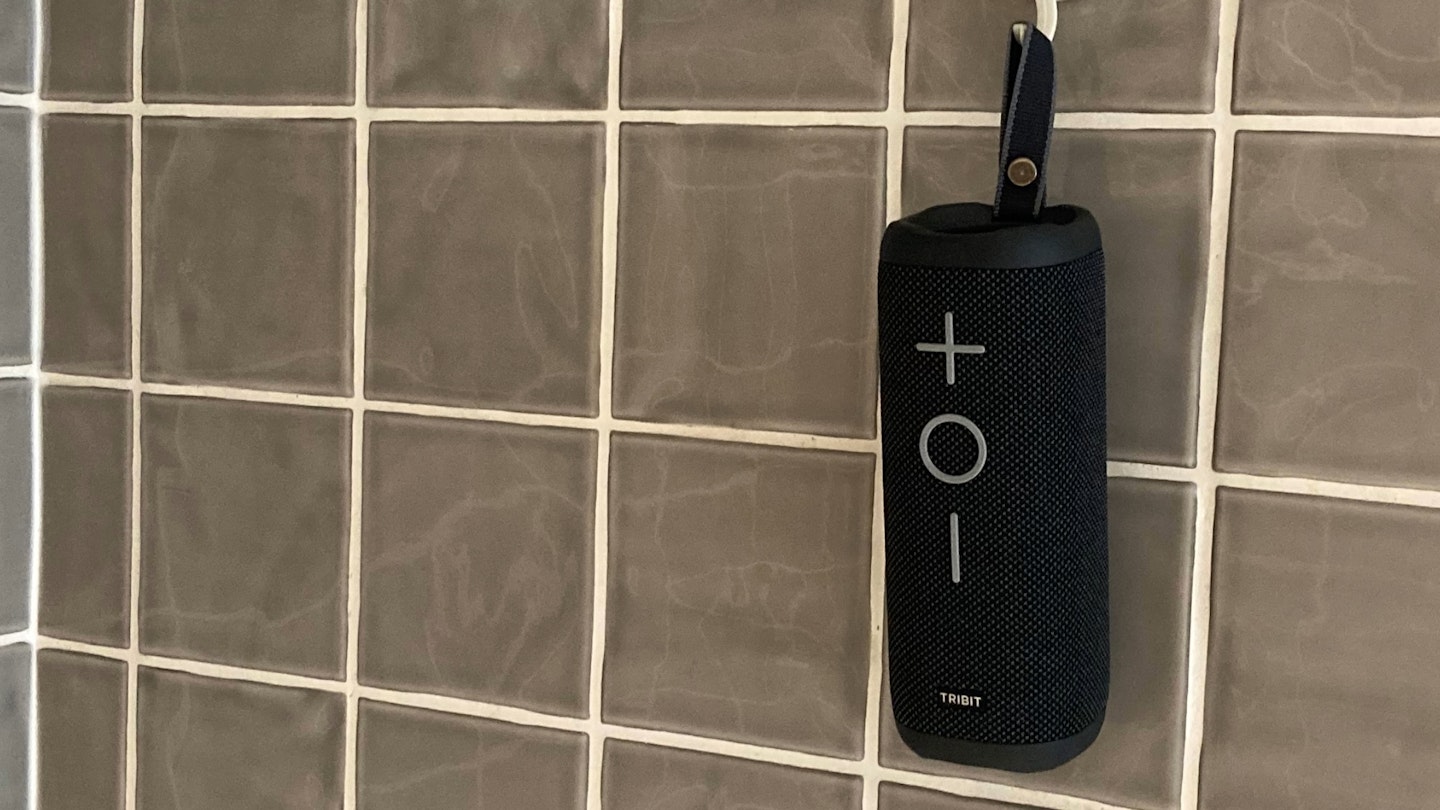
With an RRP of £63, the most-recent creation from Tribit maintains its reputation for delivering robust sound and considerable specs at a more than reasonable price point. Options from other brands which will also see you parting with a similar amount of cash (but not necessarily getting equivalent speaker power) include the Marshall Willen, the Anker soundcore Motion 100, the Ultimate Ears Wonderboom, the Sony SRS-XB23 and the JBL Flip 5.
It's the latter of these which most closely resembles the StormBox 2. However, JBL's speaker cannot match the Tribit offering when it comes to battery life. For that you'll likely need to revise your budget upwards and look at something like the Marshall Emberton II or Tribit's own StormBox Blast, both of which promise an incredible 30 hours of playback.
Speaking of which, there are also other Bluetooth speakers by Tribit which claim similar capabilities to the StormBox 2, if in a different package. The Tribit XSound Plus 2, for instance.
Who is it for?
For the very best in portable speaker sound quality, you're going to want to spend more than circa-£60. Sonos and Bose sit at this higher end (the Sonos Roam 2 and the Bose Soundlink Revolve+ II, eg) and offer Wi-Fi connectivity and voice control, in addition to an immersive music experience. They're also more likely to make commitments regarding sustainability, an area where Tribit appears to be sorely lacking.
But for a budget-friendly alternative the Stormbox 2, and Tribit in general, ranks highly. While this speaker does have the option to connect using the AUX port (a welcome inclusion) it's clearly been made to be moved. In this respect, its size makes it a more obvious candidate for travel than larger options which still claim the 'portable' moniker.
Would we recommend it?
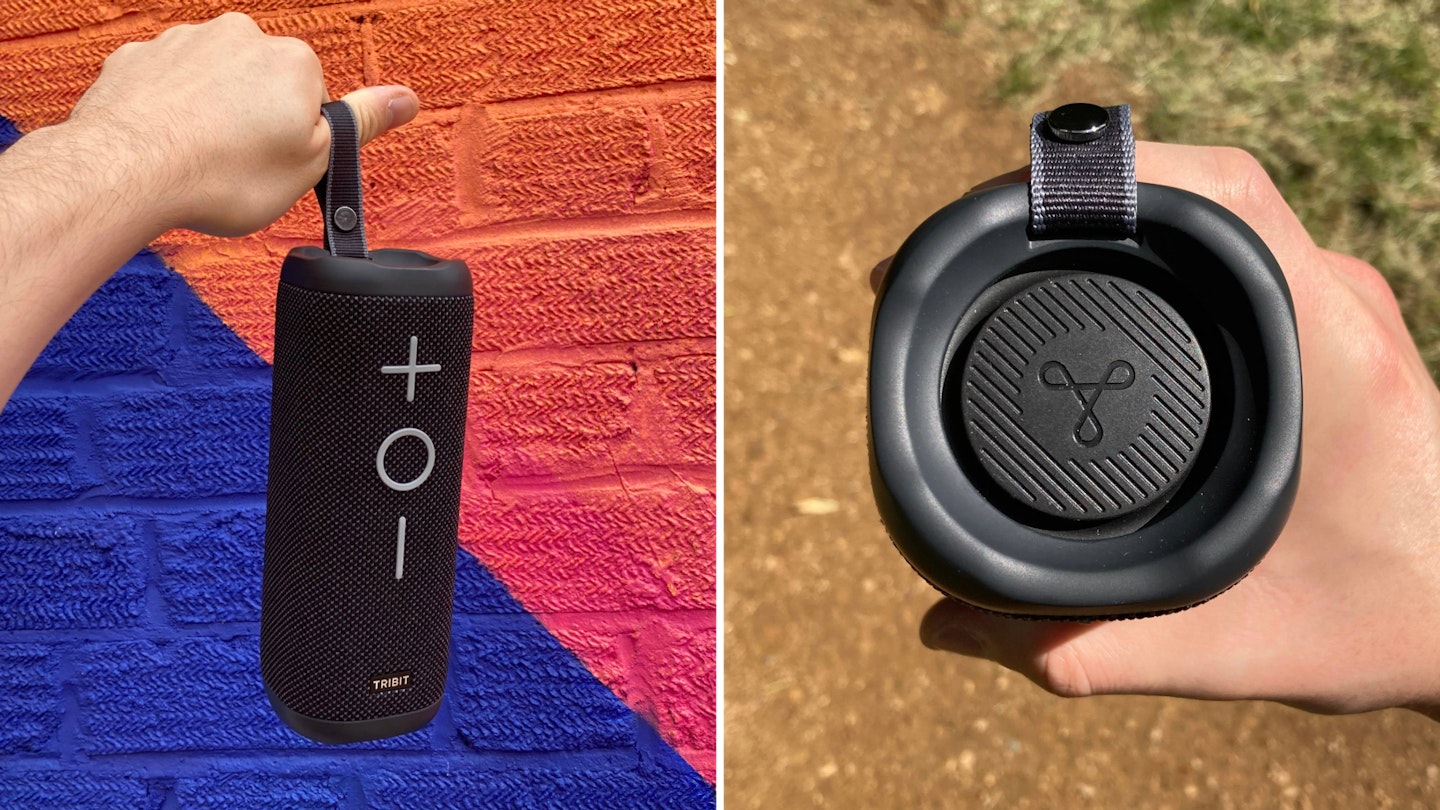
While you could look at options which are even cheaper than the StormBox 2, and which are still good for their size, you're soon going to reach a point where you'll be making compromises on quality and specs.
For the money that you need to part with to own this Tribit gadget you're getting a lot in return. Powerful sound, durability, plenty of control using the app, long battery life, the latest Bluetooth, and the list goes on.
If you want a portable speaker that packs a lot in at a low price, the Tribit StormBox 2 is more than worthy of your consideration.
More items to consider
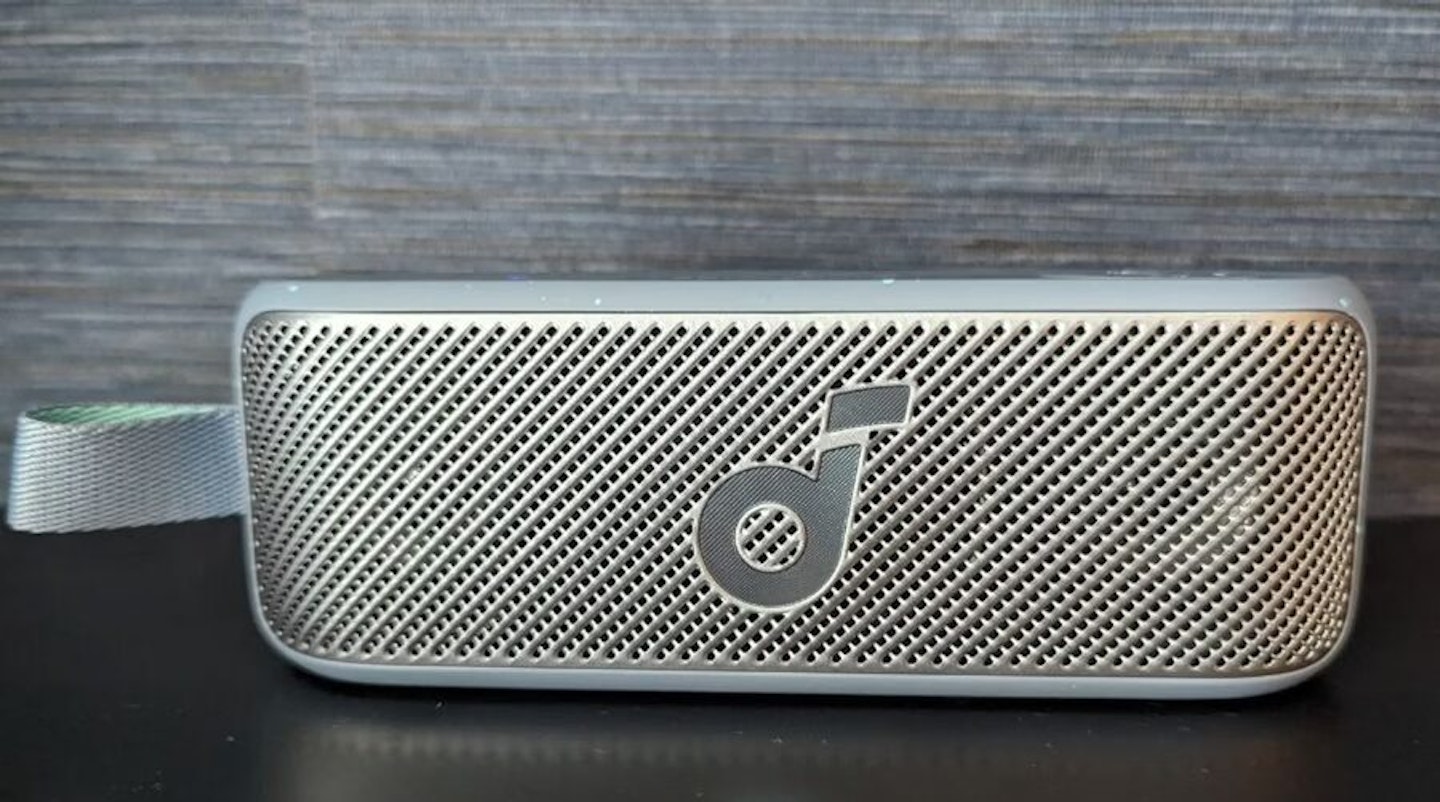 What's the Best/Kyle Purves
What's the Best/Kyle PurvesUndercutting the StormBox 2's RRP by a few pounds, Anker's Soundcore Motion 100 performed well when tested by Kyle Purves.
Find out more in their Soundcore Motion 100 review.
Pros
- Compact shape and size
- Lightweight and easy to carry
- Great waterproofing
- Consistently rich audio
- Reliable Bluetooth 5.3 connection
Cons
- Other Soundcore speakers do bass better
| Drivers | Two full-range drivers |
| Audio power | 20W |
| Battery life | 12 hours |
| Charging time | Approx. 5 hours |
| Waterproofing | IPX7 |
| Dimensions | 6.6 x 20 x 8.8 cm |
| Weight | 0.689 kg |
This option from Sonos is a similar shape and size to the StormBox 2, but with the superior sound that a higher price point brings.
Harvey Isitt breaks down all things Sonos in our ultimate buying guide.
Pros
- IP67 rating
- Lightweight and portable
- Voice control
Cons
- No Google Assistant support
- Not likely to impress as a standalone home speaker
| Dimensions | 168 x 62 x 60 mm |
| Weight | 0.43kg |
| Connections | Wi-Fi, Bluetooth 5.2, Apple AirPlay 2 |
| Battery life | 10 hours |
| Waterproofing | IP67 |
| Available colours | Black – White – Red <strong>–</strong> Blue – Green |
| Additional features | Trueplay, Button controls, Voice enabled |
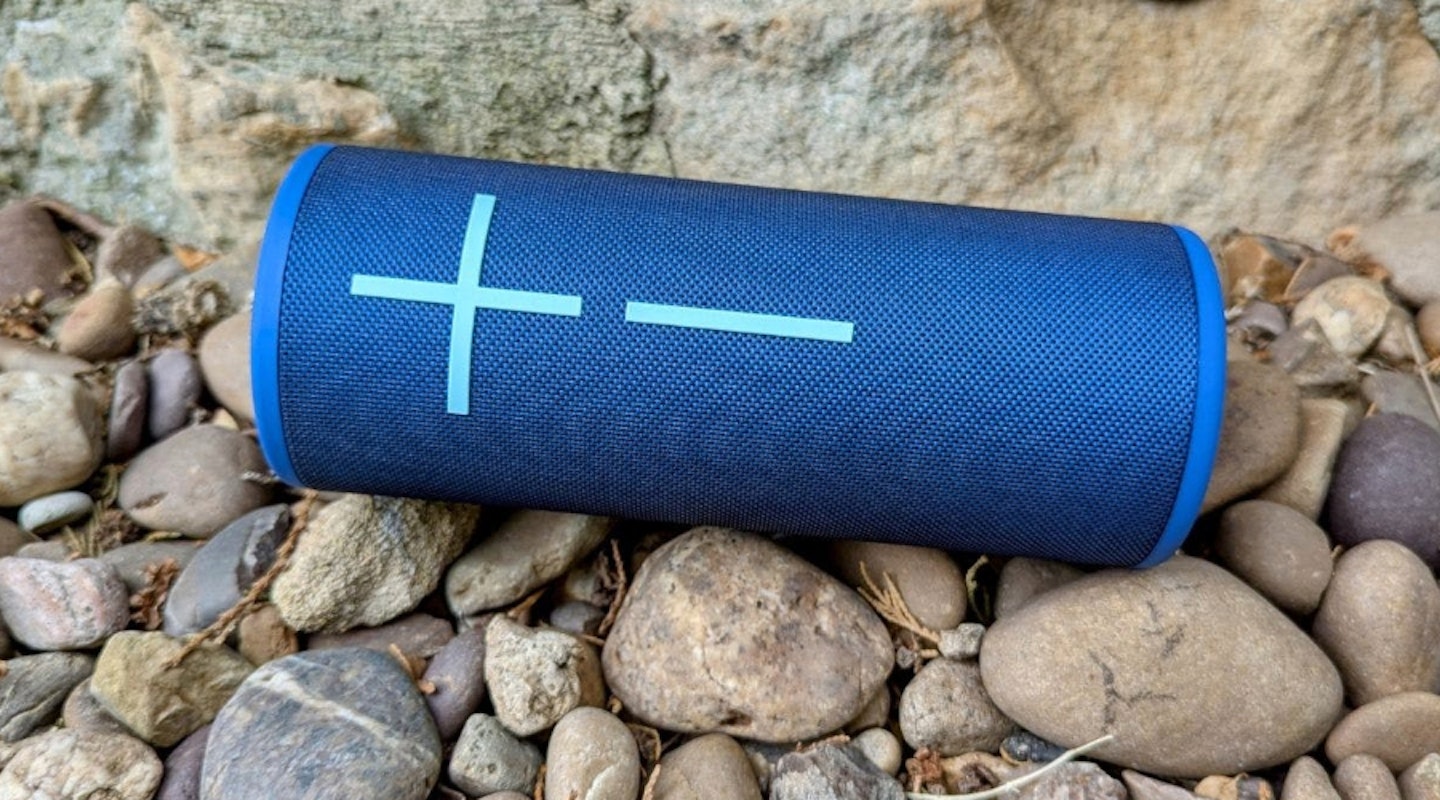 What's The Best/Steven Shaw
What's The Best/Steven Shawredirect.viglink.com
Easy to pack or stay out on the side, the Boom 4 from Ultimate Ears has their signature 'magic button' in addition to acoustics with deep bass.
Read Steven Shaw's review, as well as more about the entire Boom range here.
Pros
- Magic button
- New UE signature acoustic with deep bass
- Minimum of 52 per cent recycled plastic
Cons
- Not all colourways currently available
Who tested the StormBox 2?
The StormBox 2 was put through its paces by David Ker, Deputy Editor at What's The Best.
He tested it over a couple of weeks, judging it against manufacturer claims, as well as how it fared against rival products of a similar price. He focussed on sound, ease of use and functionality.
Why should you trust us?
At What’s The Best, our mission is to provide accurate and reliable reviews, ensuring our readers receive honest and transparent information about the best technology products available. Anything less would undermine our commitment to being a trusted source of unbiased product information.
Our dedicated in-house writing team comprises experts with extensive experience and a genuine passion for technology. Collectively, we have spent decades testing and writing about tech, leveraging our expertise in all our articles, advice pieces and reviews.
We maintain complete editorial independence and do not accept payment for product reviews. Our writers have full control over their content, ensuring that products are selected based solely on the needs of our readers. While we may earn commissions or other compensation from links on our website, this never affects our product choices. These links enable us to continue offering valuable consumer advice, without compromising the integrity of our reviews.
How What's The Best test products
Struggling to navigate the audio world? We provide unbiased reviews for real listeners.
At What's The Best, we ditch the technical jargon and deliver sound reviews for sound people. Our team of audio enthusiasts puts everyday speakers, headphones, and more through their paces in real-world listening scenarios. We don't waste your time with staged tests – we focus on how these products actually perform for everyday music lovers.
The result? Unbiased buying advice you can trust. We only review the most relevant and impactful audio products on the market, so you know you're getting the latest insights. Can't find a review for your specific gear? We're constantly expanding our review database, so stay tuned!
Want to dive deeper into how we test audio products? Visit our dedicated page detailing how we go about performing our audio reviews.
David Ker is a journalist with a decade's experience in print and digital publishing. He appreciates technology made with its environmental impact in mind and which presents him a further means to pursue his love of music, reading, games, TV and film. Above all, with so many options out there, he's interested in products that display something out of the ordinary and offer value for money. Hard to please, he assures What's The Best readers that he'll be a discerning critic on their behalf.
Subscribe to the What's The Best Newsletter to keep up to date with more of the latest reviews and recommendations from the What's The Best team.
